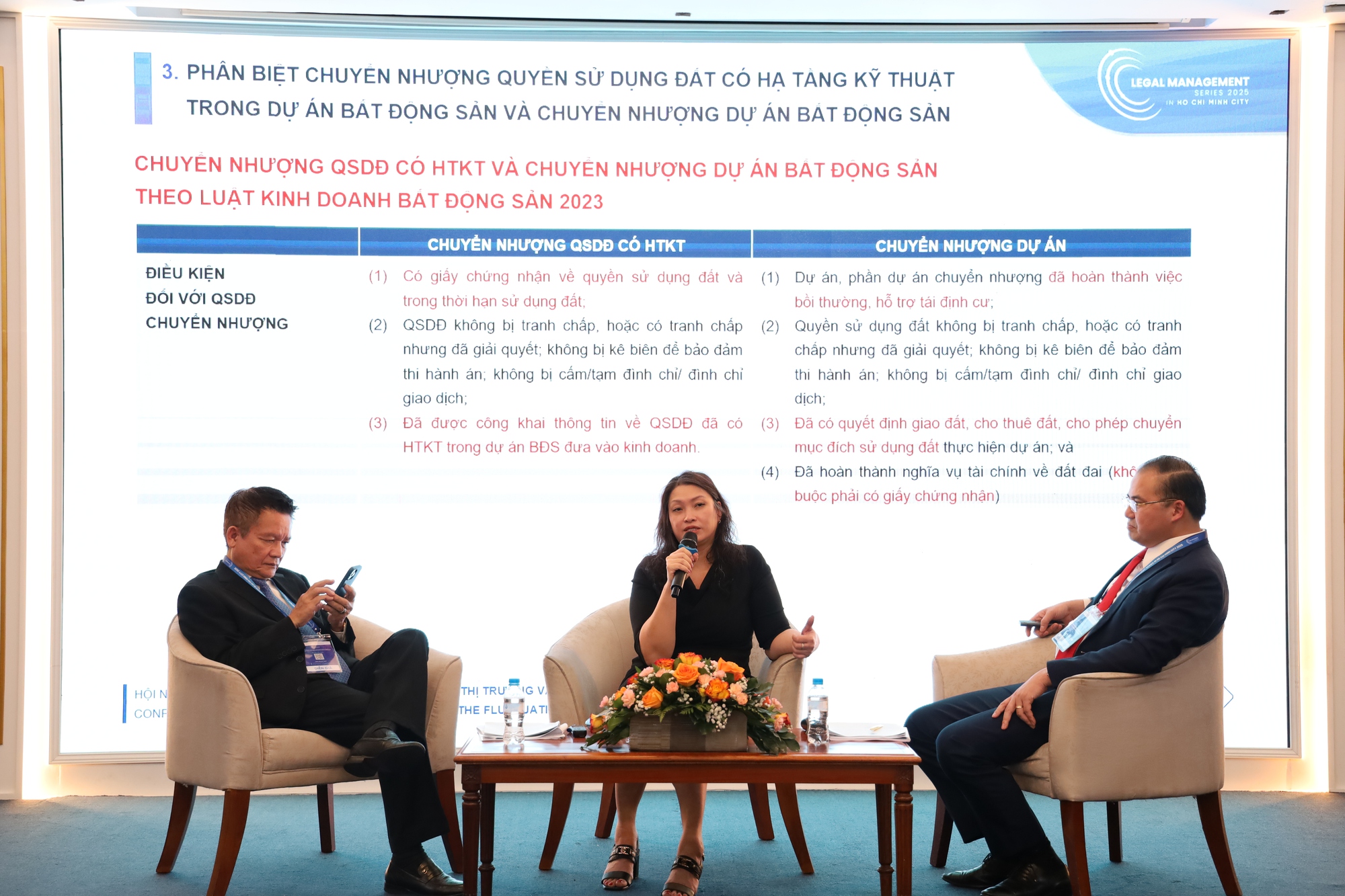Reducing Real Estate Disputes: Synchronizing Legal Framework and Enterprise Risk Management
On August 28th, Ho Chi Minh City’s Center for Investment and Trade Promotion (ITPC) and the Vietnam International Arbitration Center (VIAC) co-organized a workshop on “Real Estate Transactions in a Dynamic Market and Legal Environment.” Experts and administrators dissected common issues and offered solutions for a more transparent and robust real estate market.
A Rise in Real Estate Disputes
Ms. Ho Thi Quyen, ITPC’s deputy director, emphasized the impact of the real estate sector on Vietnam’s economic growth and its spillover effects on various industries. While the market’s rapid development has presented opportunities, it has also brought challenges due to frequent legal adjustments. She stressed the importance of timely information access and a comprehensive understanding of real estate transactions to ensure a safe, transparent, and sustainable investment environment.

Experts discussed issues surrounding real estate disputes during the workshop on August 28th.
Mr. Chau Viet Bac, VIAC Ho Chi Minh City Branch’s deputy director, shared insights from dispute resolution cases, revealing that real estate has become the second most common area of contention. Disputes in this sector rose from 14% in 2024 to 18% in the first half of 2025, surpassing other areas except for commerce and merchandise trade. Mr. Bac highlighted how these disputes extend beyond investor-buyer relationships, impacting construction, finance, and banking sectors. He attributed this to legal system shortcomings and expressed hopes for improvement with the enactment of the 2024 Land Law and the 2023 Real Estate Business Law.
Mr. Bac emphasized the importance of enterprises taking a proactive approach to legal knowledge and risk management to seize opportunities and minimize real estate disputes.
Recommendations for Enterprises
A significant cause of real estate disputes is the practice of some investors marketing projects before fulfilling legal requirements. Professor Vo Tri Hao of the Institute of International Law and Comparative Law pointed out that investors sometimes use non-legal terms in their promotions, leading to misunderstandings. Delayed project deliveries or legal complications can then trigger conflicts.
Contractual obligation violations are another common issue, with investors failing to meet deadlines or buyers defaulting on payments, often resulting in prolonged litigation. Ms. Vu Thi Que, Chairman of Rajah & Tann LCT Lawyers, highlighted the risks associated with international transactions, where sellers in Vietnam might not meet the preconditions agreed upon with foreign investors. Concealing or failing to identify project legal defects during the due diligence process can have severe consequences.
Despite stricter regulations on deposits for the purchase of future homes, some investors still find ways to circumvent the law to raise capital, putting buyers at significant risk. To mitigate risks and seize opportunities, enterprises must stay abreast of policy changes and ensure transparent and legally compliant transactions from the outset, advised experts.
Buyers and investors also have a role to play in self-protection. Diligent research, legal due diligence, and insistence on transparent and legally compliant contracts are essential steps to reduce the likelihood of future disputes.
Considering the Passage of Multiple Laws and Resolutions
Mr. Phan Duc Hieu, a member of the National Assembly’s Committee for Economic and Financial Affairs, noted that the real estate market is currently influenced by several amended laws. The Investment Law, the Public-Private Partnership (PPP) Investment Law, and the Bidding Law have adjusted the approval authority for investment plans regarding residential areas, industrial parks, and export processing zones. The 2024 Land Law has also undergone substantial revisions regarding planning, land use plans, land retrieval, and land valuation. Additionally, Resolution 201/2025/QH15 introduces a pilot program for social housing.
Mr. Hieu informed that the National Assembly will soon deliberate and approve 48 draft laws and resolutions, many of which pertain to the real estate sector. This underscores the importance of enterprises closely monitoring and adjusting their strategies to remain compliant and adaptable.
Mr. Hieu emphasized that legal provisions not only provide a regulatory framework but also present opportunities and challenges. Enterprises that adhere to and swiftly adapt to these provisions will be better positioned to minimize risks and achieve sustainable development.
A Proposal to Reduce Land Use Fees for Residential Purposes
HoREA has proposed that in the event of a Government Resolution, the collection of land use fees when converting agricultural or non-agricultural land to residential land should be clearly specified. They suggest a reduction from 30% to 20% for land within the allocated residential land limit, and from 50% to 30% for land exceeding this limit.
“High-Level Meeting Convenes to Discuss Critical Land Matters”
At 2 p.m. today, [date], Deputy Prime Minister Tran Hong Ha will chair a meeting to discuss the amended Land Law with the attendance of leaders from various ministries, sectors, and local authorities.
The Power Trio: BSH, VIG & TAPTAP’s Strategic Alliance for Sustainable Growth
As insurance needs become increasingly intertwined with life experiences, consumers demand swift and transparent solutions. The collaboration between BSH Insurance, VI Group, and TAPTAP does not merely bring insurance closer to digital-savvy consumers but also forges a multifaceted ecosystem where both customers and businesses thrive.




















